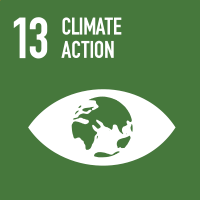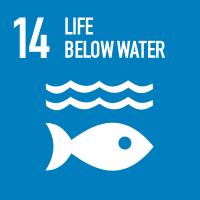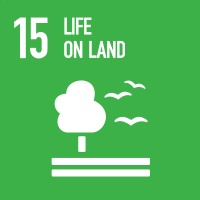Studying at the University of Verona
Here you can find information on the organisational aspects of the Programme, lecture timetables, learning activities and useful contact details for your time at the University, from enrolment to graduation.
Study Plan
This information is intended exclusively for students already enrolled in this course.If you are a new student interested in enrolling, you can find information about the course of study on the course page:
Laurea in Biotecnologie - Enrollment from 2025/2026The Study Plan includes all modules, teaching and learning activities that each student will need to undertake during their time at the University.
Please select your Study Plan based on your enrollment year.
1° Year
| Modules | Credits | TAF | SSD |
|---|
2° Year activated in the A.Y. 2022/2023
| Modules | Credits | TAF | SSD |
|---|
3° Year activated in the A.Y. 2023/2024
| Modules | Credits | TAF | SSD |
|---|
1 module among the following| Modules | Credits | TAF | SSD |
|---|
| Modules | Credits | TAF | SSD |
|---|
| Modules | Credits | TAF | SSD |
|---|
1 module among the followingLegend | Type of training activity (TTA)
TAF (Type of Educational Activity) All courses and activities are classified into different types of educational activities, indicated by a letter.
Applied ecology (2023/2024)
Teaching code
4S008191
Teacher
Coordinator
Credits
6
Language
Italian
Scientific Disciplinary Sector (SSD)
BIO/07 - ECOLOGY
Period
Semester 1 dal Oct 2, 2023 al Jan 26, 2024.
Courses Single
Authorized with reserve
Learning objectives
The aim of the course is the understanding of the fundamentals and theories of ecology, to interpret and govern the articulated relationships that are the basis of the productivity of different ecosystems or to correctly face the imbalances generated by pollution and anthropic pressure. The course will provide an overview about general principles in ecology, about the relationship between biotic/abiotic factors to understand and face complex interactions in natural and antropic contests. The course will also provide an introduction to the themes of applied ecology, with a focus on biodiversity conservation and the ecology of climate change.
Program
SECTION I - THE PHYSICAL ENVIRONMENT
1: Climate
2: The Aquatic Environment
3: The Terrestrial Environment
SECTION II - THE ORGANISM AND ITS ENVIRONMENT
4: Adaptation and Natural Selection
5: Plant Adaptations to the Environment
6: Animal Adaptations to the Environment
SECTION III - POPULATIONS
7: Properties of Populations
8: Population Growth
9: Life History
10: Intraspecific Population Regulation
SECTION IV - SPECIES INTERACTIONS
11: Species Interactions, Population Dynamics, and Natural Selection
12: Interspecific Competition
13: Predation
14: Parasitism and Mutualism
SECTION V - ECOLOGY AND COMMUNITY
15: Community Structure
16: Factors Influencing the Structure of Communities
17: Community Dynamics
18: Landscape Dynamics
SECTION VI - ECOSYSTEM ECOLOGY
19: Ecosystem Energetics
20: Decomposition and Nutrient Cycling
21: Biogeochemical Cycles
SECTION VII - ECOLOGY AND BIOGEOGRAPHY
22: Terrestrial Ecosystems
23: Aquatic Ecosystems
24: Coastal and Wetland Ecosystems
25: Large-Scale Patterns of Biological Diversity
26: Global Climate Change
Bibliography
Didactic methods
Classroom lectures (PowerPoint).
Learning assessment procedures
The exam consist of a multiple-choice written test that will focus on the subjects covered during the course.
Evaluation criteria
The exam will aim to the student's level of knowledge of the main topics covered during the lectures.
Criteria for the composition of the final grade
The final grade will be determined by the written exam.
Exam language
Italiano



